Earlier this month, my partner and I drove across the U.S. for the seventh time to rehome our dog, Piggy. (Pitbulls are, unfairly, not allowed in Singapore.) It was an emotional trip. In part due to the extreme guilt I was processing from giving up my sweet boy, but also because I was unnerved by the nostalgia I felt, reminescing about my life in the U.S. while desperately wanting to get the f*ck outta there.
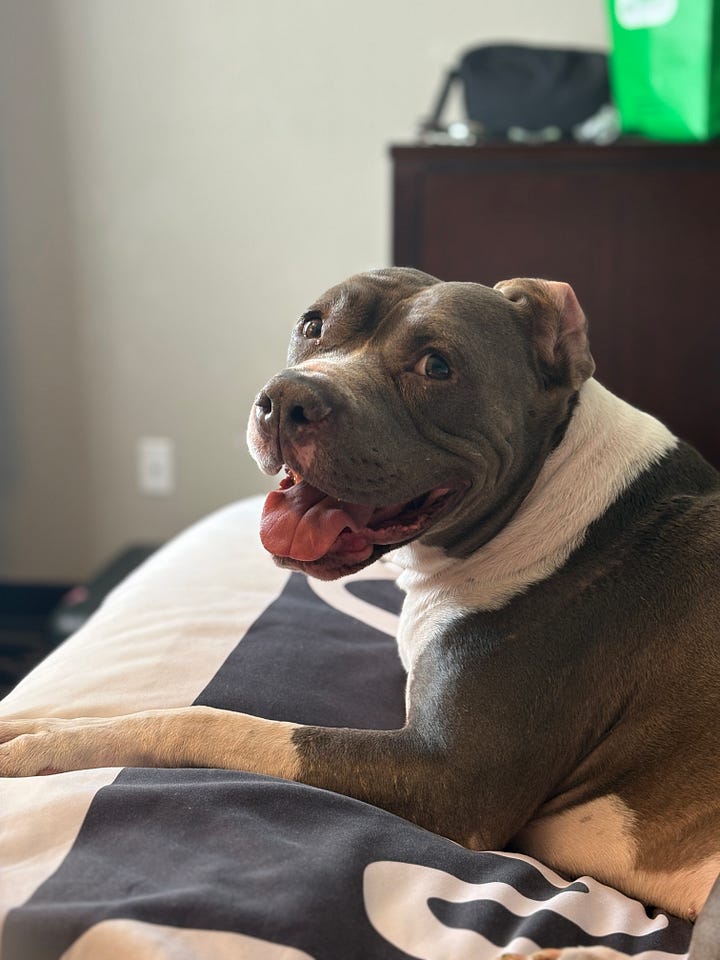

In 2014, the year of our first drive, I would describe our interactions as quietly hostile. In one notable incident, we pulled into a gas station in rural Iowa to take shelter from a thunderstorm, only to be greeted by three siblings glowering at us with their firearm propped up on the cashier counter. We turned tail and sat in the car until the rain stopped.
By 2017, our third drive, Trump had taken office, and things had become outwardly hostile. I was not allowed outside the car unless I really had to use the restroom, in which case my partner would stand guard nearby. Strangers stared openly and walked too close. “Don’t,” my partner would mutter under his breath when he could sense me tensing up and becoming combative. So I exploded in the car instead, at the injustice of having to make myself small, silent, and scared in the place I grew up.
This time, I went into the trip with my hackles raised and pepper spray ready. Knowing the bulk of the miles were in solidly red territory, I steeled myself for things to be even worse than I remembered. I expected a smugness in people’s eyes as they looked at me, maybe a taunting curl of their lips as they asked where I was coming in from — not from the area, right?
I was prepared for the vast emptiness of the landscape. The long stretches of highway flanked by cornfields, cylindrical then rectangular hay stacks, and industrial feedlots. Roadside fruit stands and magnificent rock formations that I would want to stop at to buy a watermelon and enjoy the view (but never did). The seemingly never-ending evangelical billboards begging you to find Jesus (the yearly ad spend of 83-For-Truth could probably feed a few cities), punctuated by ads for Little America and Fourth of July fireworks. Trump 2024 bumper stickers.
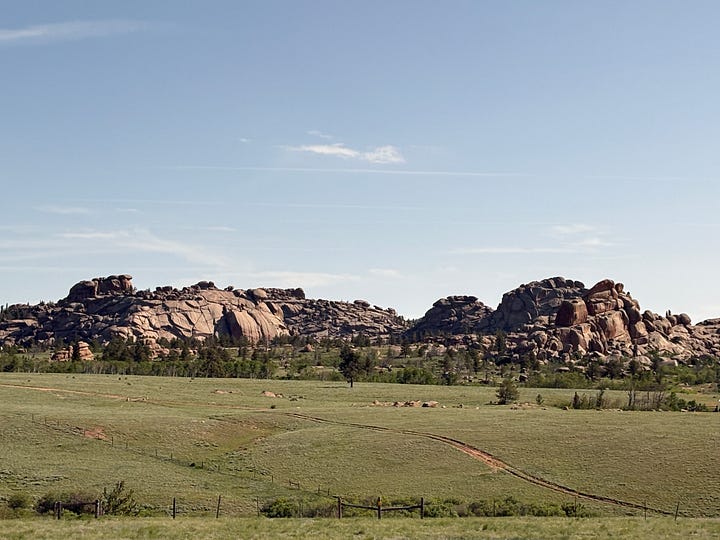

Indeed, many of my predictions were warranted. We did drive by plenty of Trump banners, including one that proclaimed, “Trump was right about everything!” But in many other ways I could not have predicted, the drive was a series of contradictions, bold challenges to the logic of America I had in my head.
In the loneliest and smallest town we stopped in — Gothenburg, Nebraska, population 3,398 — I ordered some (unexpectedly fire) Chinese American takeout from an auntie named Lisa. Her restaurant looked like a deserted house with an “Open” sign, replete with an overgrown garden outside and dusty photos inside, presumably of family members and their children. She told me she is the only Chinese person for miles. Been that way for decades. I asked her why she decided to stay here all alone. She answered because she felt safe. I had half a mind to ask her if she’d watched any news recently, because how “safe” can someone like her be this deep in Trump country? But then, what did I know of her life? I bit my tongue and thanked her for the meal instead.
Later that day, when we pulled into our hotel, tired and hungry, the front desk attendant fumbled repeatedly over my passport. As she held it upside down and attempted to flip to the photo page from the back, I stared at her openly, slack-jawed and judgmental. When she saw my face, she became even more flustered. “Sorry, sorry,” she apologized, “I’ve never seen one of these before.”
It was not my finest moment. I had been so prepared for micro (or macro) aggressions aimed at me, I’d forgotten how capable I was of doling them out myself. Just a few days prior in Lexington, KY, I was dining al fresco with my friend Sam Fore at her Sri Lankan restaurant when an older white woman approached her and asked for menu recommendations. I initially assumed it was because she knew Sam owned the place; turns out, it was just because Sam is brown. I had rolled my eyes and made several underhanded comments. And yet, just two states over, I would be on the other side of that equation.
Was this a reflection of how I’ve changed, now that I’m part of the ethnic majority in the country I reside in? I never before understood the sense of entitlement white people seemed to exhibit all around me growing up, walking into a space and demanding it operate the way they had played out in their heads. How affronted they were at minor inconveniences — not being given a fork immediately, needing the menu to be translated by the server, having only Styrofoam options for takeout. This is my country, their every action seemed to establish, you’re just living in it. I remember how I would internally bristle at this insinuation, not just because it felt unfair but because it felt true. This time back stateside, I wondered if I had learned to carry myself in the same way. If that front desk attendant felt my energy even from behind her thin-ply desk. Who are you, my silence asked, and what are you doing in my country?
When we go on these trips, we always stay at La Quinta because it has the cheapest dog policy. (Typically $25 versus a whopping $125 at Hampton Inn.) If you’ve ever been to one, you know it’s not exactly a fancy, cosmopolitan hotel. And yet, a room is now $150 or more per night before the pet fee. I was flabbergasted when I saw the pricing, vaguely recalling that it had cost under $100 when we drove in 2022. My partner, who works in vacation rentals and follows the changes in travel lodging, advised me to pay attention to how many La Quintas and other chains in their category (e.g., Comfort Inn) have undergone renovations since our last visit. It was true — our drive was littered with their grey, angular attempts at chic hotel architecture. “Their original clientele can’t afford to travel anymore, so they’ve had to position themselves for slightly higher-end travelers and business travelers.”
Indeed, I saw far more worn, black briefcases tucked onto the handles of carry-on suitcases than couples and starter families on a domestic vacation. Who needs a U.S. passport then, if one can’t even travel to the next state over? But some things stayed the same — namely, the breakfast. Every day we woke to watery coffee (which I must admit, I oddly enjoy), the small fridge with definitively and only cow’s milk offerings, the waffle machine that always smelled burnt because someone could not follow instructions and overfilled the batter.
But no eggs.
A small sign informed me that biscuits and gravy would be offered in lieu of eggs — indefinitely. At the grocery store, I was greeted with barren shelves in the refrigerated section. UNFI, the country’s largest organic food distributor, was hacked earlier in the month and subsequently forced to shut down its entire network. According to an industry friend who uses them, there have been no updates for weeks, and no end is in sight. I silently debated with myself the most appropriate label for a country where even powdered eggs are unavailable for the masses.
While I was already aware of the skyrocketing cost of eggs, somehow I didn’t register that this would cause reverberating sticker shock in everything I ate. In Aberdeen, NC, I paid $15 for a cold hummus and vegetable sandwich — you know, the soggy kind found at the bottom of a bad catering order when HR remembers vegetarians exist. In Caldwell, ID, my quinoa salad with no toppings cost nearly $18 with tax and tip. I was astounded. Who in these areas could reasonably afford to eat in these establishments?
Apparently, not a whole lot. We were frequently one of maybe four or five people at any given place. The busiest location we dined at was probably Best Tacos y Burritos La Paz in Cheyenne, WY; it was one of our more affordable meals too, perhaps because it is also a bodega. In addition to a large group of locals loudly deciding what to order — “It’s my first time here, yeah, crazy, I live here though,” one of them repeatedly felt the need to announce — several teenagers came in to buy Jarritos and chips. When I attempted to order menudo (it was the weekend), the cook stared at me like I was speaking an alien language. Or perhaps just one of privilege, blissfully ignorant of the fact that most of the menudo-eating clientele were no longer around to patronize the shop. “No menudo,” she said, without explanation. Same for the lengua, tripa, and cabeza. She gestured to a short English menu behind her, updated with options like Cowboy Burrito. “Just this.”
Oregon was the first blue state of our trip, and I breathed a sigh of relief pulling into Portland. (Also Piggy’s new home.) But even there, a sense of quiet trepidation remained. It was Juneteenth when I took a morning spin class, surrounded by sweaty, fit women with color-matching Alo sets and Stanley tumblers. The instructor hyped us with low lights, loud music, and a “Who’s off work today??!”
Most of the room enthusiastically raised their hands and whooped.
“And who knows why they are off work today??!”
Arms faltered.
“Okay, well, I really need you all to look up why you’re off work today if you don’t know,” she continued, clearly taken aback by the shift in the room. “Even if you don’t consider yourself part of that community, okay? As a white person, I feel I need to say something.” The word “Juneteenth” was not uttered.
I had expected a lot of silence on the trip, but not this kind of silence. After crossing the country six times together, my partner and I had settled into an easy quiet in the car, only putting on an occasional podcast (What Now? and Philosophize This! were our picks this time) or music jam between our conversations. I know it sounds loony, but it’s genuinely nice only listening to the methodical hum of the engine and the rolling snores of a dog. But outside our car was a resoundingly different quality of silence, an emptiness of everything left unsaid.
I could only guess the reasons: maybe from fear and self-censorship, knowing that politics aren’t always worn visibly. Maybe from the hopelessness that seemed to exude from every empty parking lot or boarded-up restaurant, the fading memory of what America was supposed to be like. Sometimes, there was also a pointed silence, as if the locals wanted to prove my presence was no big deal to them. Look, it seemed to say, I’m not how you think I am.
All around me, “they,” the people I so often lumped together and trotted out to blame for destroying the country, shared in my confusion at what was happening to their home. I had never before felt that I had so much in common with Americans, yet felt so far removed from America. For maybe the first time, I felt like an immigrant. Not the “ABC” or American Born Chinese as I’m often called (even though I was technically born in China). Not the Chinese American with lots of opinions about the dynamics of being Asian in America. I felt like a stranger, visiting a home I no longer knew, trying to remember the person I no longer was. Perhaps this is how my parents felt when they first arrived in the U.S., stranded and longing for the home they had been so determined to leave.
By the time I arrived back home to my parents’ house outside Seattle, WA, I was feeling decidedly not like myself. I had very little to say during dinner — although I did eat a very large helping of Rainier cherries — and preoccupied myself with getting my old, blind little dog Gwenevere ready for our post-meal walk.
The trip had filled me with confusion, but I didn’t know how to articulate it coherently to my parents as we strolled around their neighborhood, full of rabbits and cookie-cutter single-family homes. To them, America was an external place. A place that had been able to fulfill more than even their wildest dreams. Whatever becomes of it, they’ll have no regrets about coming here and making a life that has now enabled them to retire soon and travel the world. (Which they 100%, absolutely deserve.)
But I couldn’t share in their separation of being in America and being American. I can’t help wanting the country to be something else because I see myself as someone else. I missed my home, yet I was afraid of staying too long, lest I be forced to consider that my belief in America’s at least attempts to move towards progress and justice had been a lie for my entire lifetime. (According to Ray Dalio, the U.S. has been in decline since the 1980s.) What does my ongoing refusal to see the country clearly say about me? I’m not prepared to answer that — maybe because I am not yet able to see myself clearly, either.
It’s been a while…a few memes to cry over
Personal Stuff from This Week
Listening: I’m in a podcast lull — please send me some recommendations!
Watching: All the John Wick series in preparation for seeing Ballerina in theaters
Reading: Political Emotions: Why Love Matters for Justice by Martha C. Nussbaum
Eating: Back in Singapore and it feels so good! Just had great fish ball noodles at Hong Lim hawker centre. (See my whole Singapore list here.)
Drinking: TCM medicine…my inescapable daily routine
Nice thing I did for myself this week: I took a week plus to write this newsletter and didn’t criticize myself for taking so long. Because some things just need time.




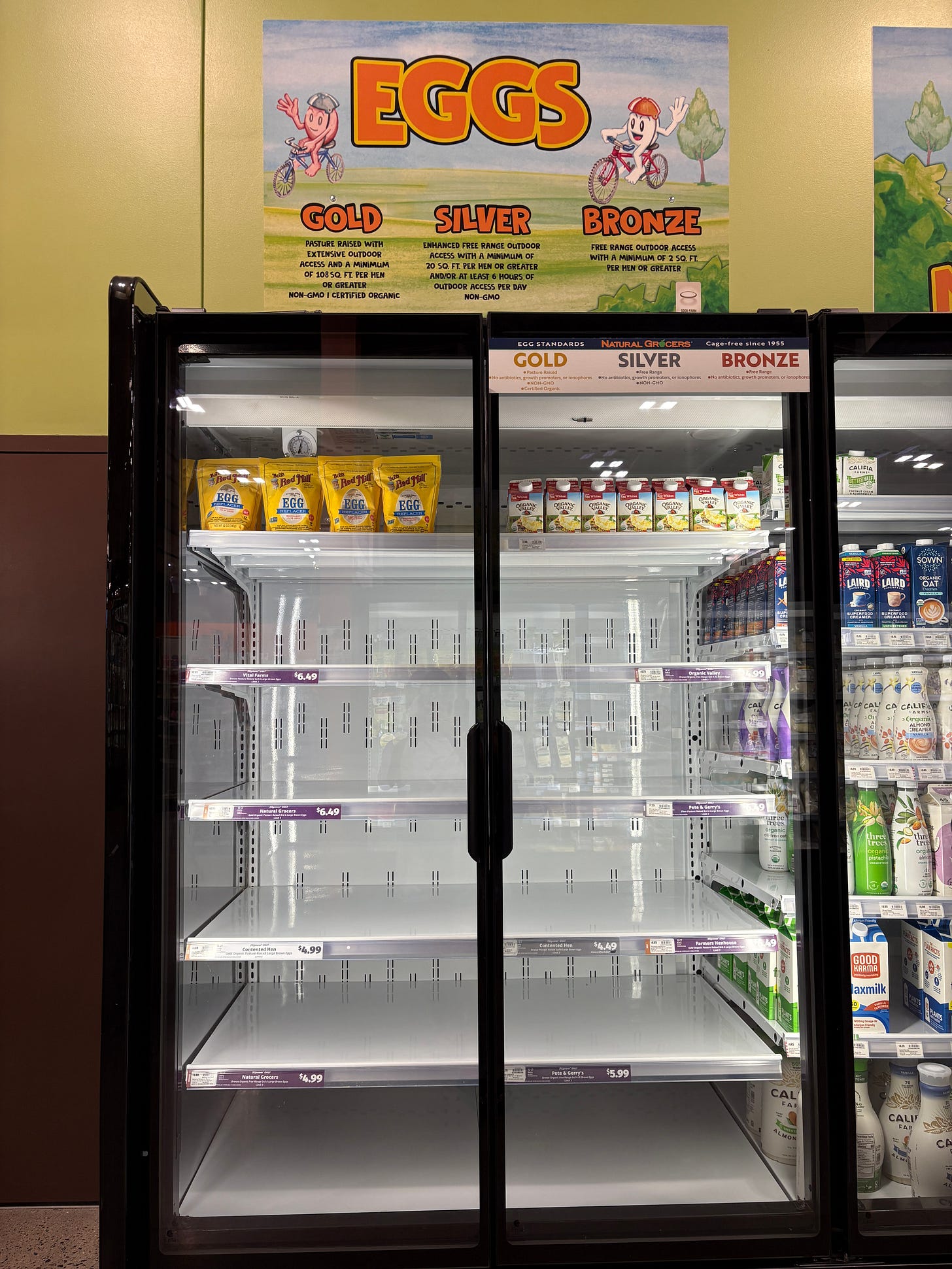
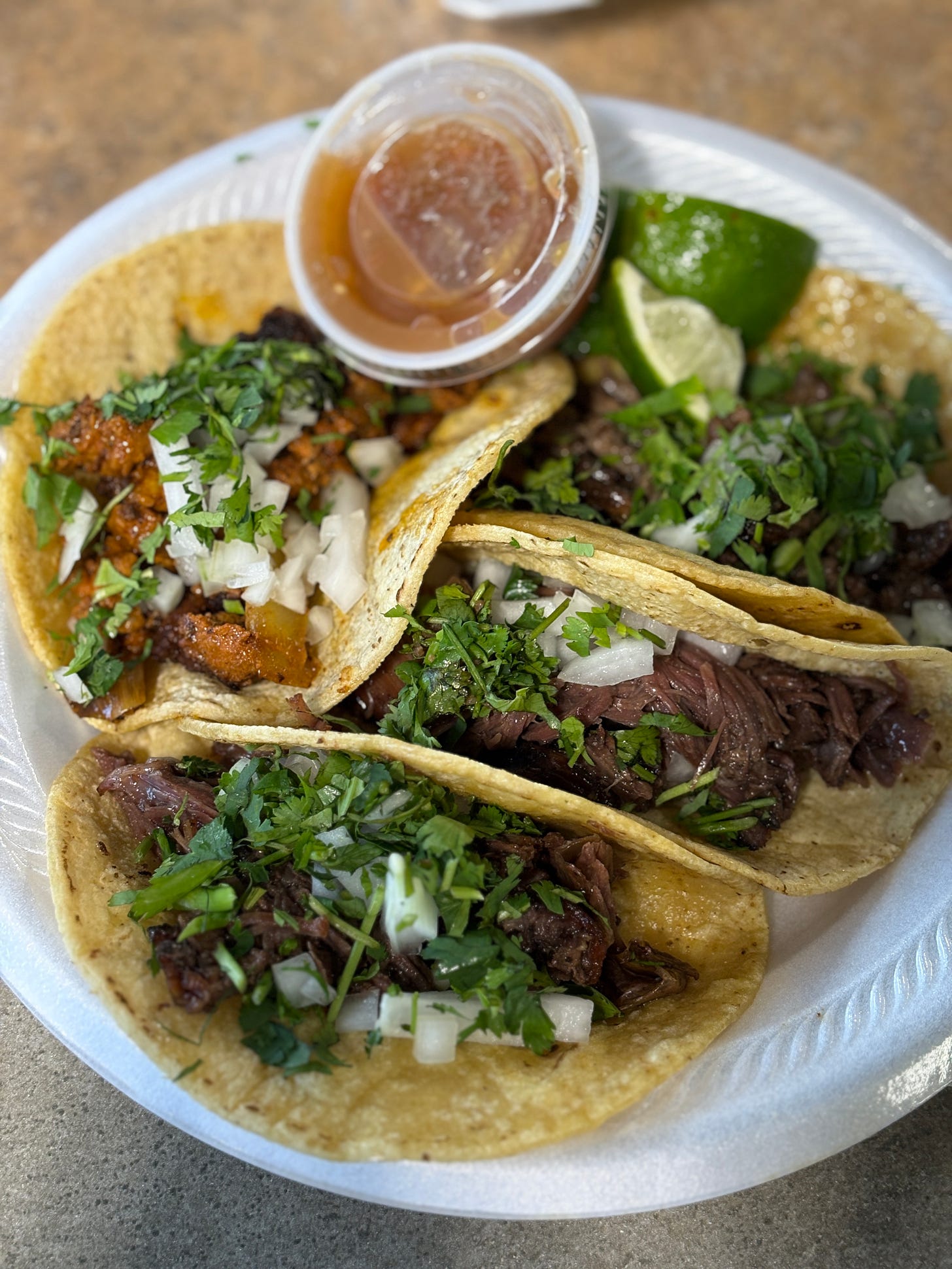
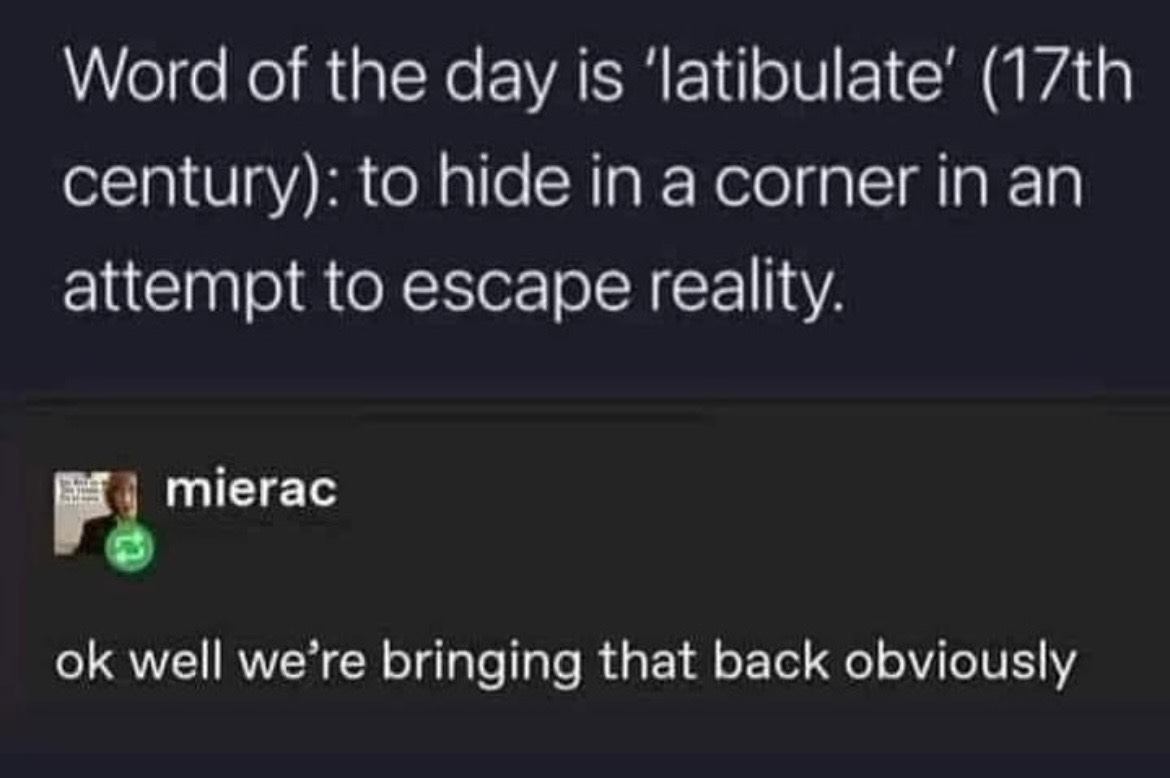
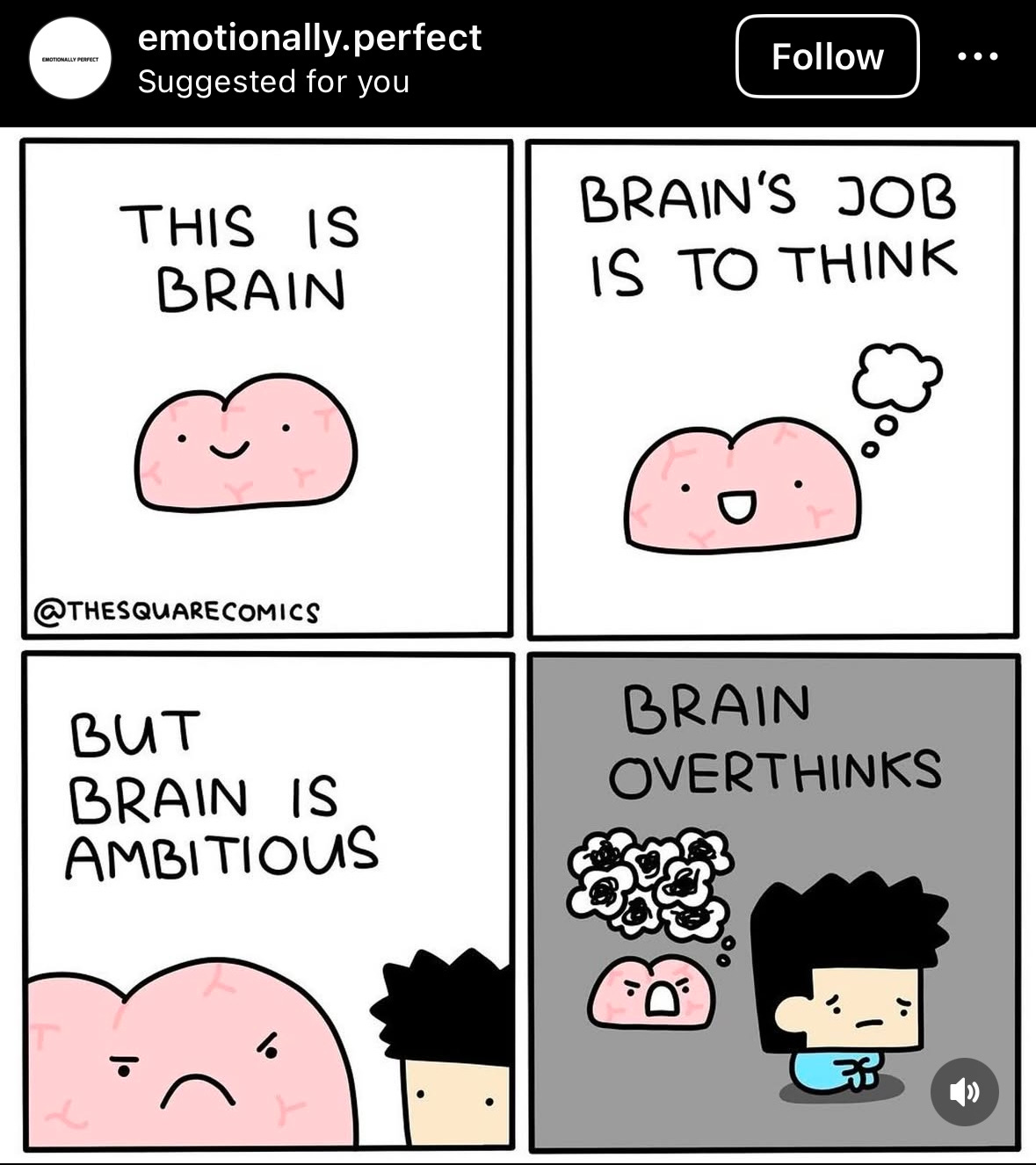

Millennials are killing capitalism is a really great podcast! Thanks for sharing your writing.
Thank you for sharing this and letting us drive with you and witness your interior dialogue as you reflected on the exterior, especially perceptions of the American Dream.